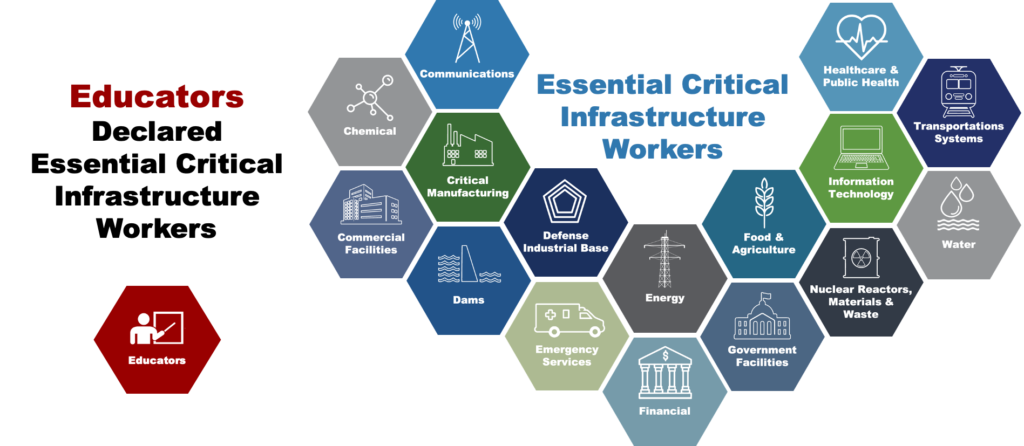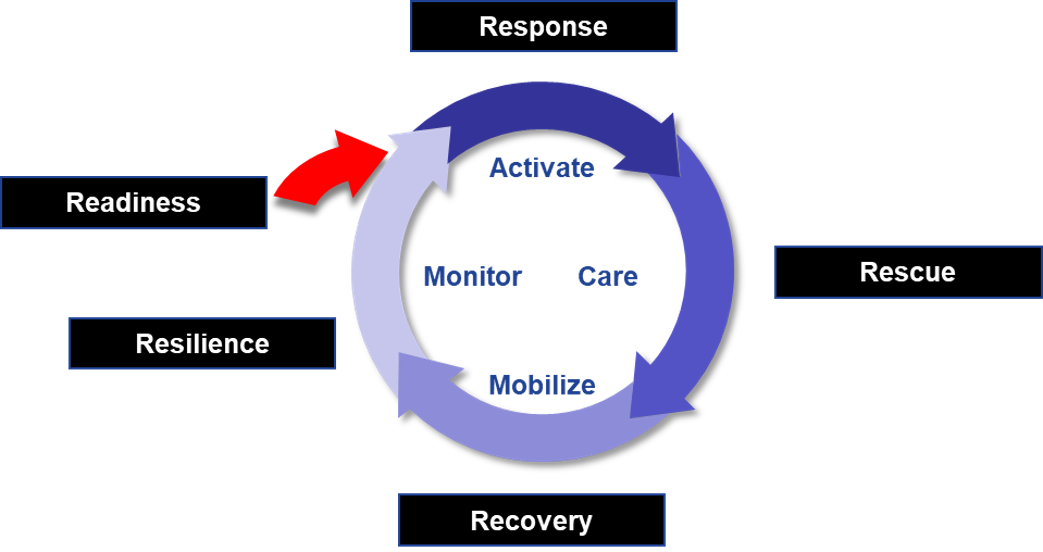Coronavirus Crisis Rapid Response Team
In 2020 in response to the Coronavirus Crisis, Dr. Denham reconstituted the global teams of experts he led to develop national guidelines for patient safety including patient safety practices including the Ebola outbreak, experts in technology assessment and group purchasing, and is developing rapid response teams that draw from a pool of 500 subject matter specialists developed over 36 years. Although this is Dr. Denham’s website, the use of the word “we” or “team” refers to the teammates who are working together and are coordinated by Dr. Denham.
The team are focused on providing leadership, practices, and technologies support to the global community, countries, and organizations by:
- Essential Critical Workforce Strategies: Developing immediate strategies and tactics to keep the Essential Critical Workforce functioning during the crisis – their systems are critical.
- Family Centric Focus: A worker family centric approach is vital to winning the war against the virus.
- Vulnerable Population Support: Developing support strategies community leaders can take to serve the aged and at risk.
- Technology Assessment & Group Purchasing: We have extensive experience in technology assessment and group purchasing which will be applied to a continuous approach to assess clinical, operational, and financial evidence for products, services, and technologies.
- Innovation Acceleration: We will accelerate high impact product, service, and technology innovations generating evidence-based and validated impact on clinical, operational, and financial outcomes, process, structure, and experience measures.
- Optimizing Health Security Frameworks: We are organizing the work by the “4 Rs” – Readiness, Response, Rescue, Recovery, and Resilience. This systematic approach is being developed for countries, communities, and businesses.
- Applying Ebola Training Experience: Our Ebola Outbreak Readiness for U.S. communities informs strategies today.
- Building on Healthcare Acquired Infections Programs: We will build on the platform we developed to establish the national guidelines for the six major Healthcare Acquired Infections (HACs) in collaboration with four U.S. federal agencies.
- Information Technology Solutions: Simple I.T. solutions are being created for test-trace-treat-isolate-quarantine success.
- Producing Continuing Education: Training systems are being deployed to providers, critical workers, and the public.
Essential Critical Workforce Strategies
The only way for a country, community, or company to survive and thrive through a pandemic is to focus on the critical life support systems or centers of gravity in the ecosystem. Interventions must be surgically and simultaneously targeted for survival. The team is guiding its partners to identify the critical workforce for survival and implement Test-Trace-Treat-Isolate-Quarantine (T3IQ) tactics using an “all teach – all learn” program.
Family Centric Approach
The transmission of the disease is directly related to close physical proximity. We must avoid the mistake of only caring for individuals and failing to recognize that concepts, tools, and resources to reduce disease transmission must be directed to the entire family of an infected individual. By focusing on the families of critical essential workers, we can halt transmission from work and transmission from the community to the essential workforce. See continuing education program at https://www.medtacglobal.org/preparingforcareathome/
Vulnerable Population Support
Through the Med Tac Global programs, multimedia education, community outreach, and research and development approaches have been undertaken by the team to help seniors and those at risk for COVID-19. See Seniors Checklist and video at https://www.medtacglobal.org/coronavirus-response/
Technology Assessment & Group Purchasing
Dr Denham was on the leadership team that merged three companies into one that became Premier Inc., a Group Purchasing Organization now purchasing $61B in medical products, services, and technologies. Dr. Denham developed the innovation assessment and contracting processes for $21B in purchasing. He was the founder of the Premier Innovation Institute along with six $100 billion dollar companies in partnership with the 1,700 Premier hospital owners. The evidenced based processing system that was developed assessed clinical, operational, and financial data for products, services, and technologies. This processing approach has been updated to assist in purchasing of of products, services, and technologies to combat COVID-19 for countries, corporations, and community organizations such as schools.
Innovation Acceleration
For certain product, service, and technology innovations that have clear evidence-based and validated clinical, operational, and financial impact; the team will help accelerate them into populations. Measures of outcomes, process, structure, and experience (patient and caregiver experience) metrics (OPSE) used by the team in development of patient safety guidelines and in the commercial sector will be used. The probabilistic risk and impact system (Map-Gap-Plug-Play) developed by Dr. Denham will be used. The clinical, operational, and financial processes are mapped into care paths or user cases. The performance gaps being targeted are defined by the above OPSE measures. Impact calculators and simulators are used to define critical needs and test potential solutions and innovations. Potential innovations are “played” back to the targeted ecosystem and frontline users. A cyclic iterative process is undertaken to help refine innovations that can save lives, save money, and bring value to the communities served.
Applying Ebola Readiness
When we had the Ebola infection appeared in Dallas Texas, we engaged our teammates at the Centers for Disease Control and established training events to prepare caregivers and healthcare institutions for care of infected patients. The programs served 3,100 hospitals in 3,000 U.S. communities. They included best practices in use of and managing Personal Protection Equipment and best practices in care of patients as well as isolation and quarantine of caregivers. These strategies now apply to both healthcare institutions and families who must care for COVID-19 patients at home. See www.SafetyLeaders.org for continuing education series.
Building on Healthcare Acquired Infections Programs
The team of leading infectious disease specialists, safety and quality leaders, and representatives from four government agencies who worked together to establish the best practices and guidelines for the public private partnership of the National Quality Forum has been reconstituted to tackle the Coronavirus crisis. The practices targeting the 6 infections representing 200,000 annual deaths they developed were subsequently incorporated into private insurance and employer incentive programs. They ultimately became part of the Centers for Medicare and Medicaid incentives. The work on the Coronavirus Crisis is integrated into a Health Security Strategy.
Information Technology Solutions
Simple I.T. solutions are being created for test-trace-treat-isolate-quarantine success as countries and organizations proceed through the Coronavirus Crisis. Speed is critical to tie tests to contact tracing, treating those with severe illness early, isolating those with infections, and quarantine those at risk. Education must be tightly coupled to the use of these strategies. We are leveraging existing communication networks and behavioral economics to implement innovations that can support battling COVID-19. Scale at speed is the goal.
Producing Continuing Education
Training systems are being deployed to providers, critical workers, and the public through the Med Tac Global Bystander Rescue Care program found at https://www.medtacglobal.org/coronavirus-response/ . A Coronavirus Crisis community of practice for to serve essential critical infrastructure workers, their families, and the general public. Continuous curation of educational information and live webinars will be run on a monthly basis until the global crisis subsides.

